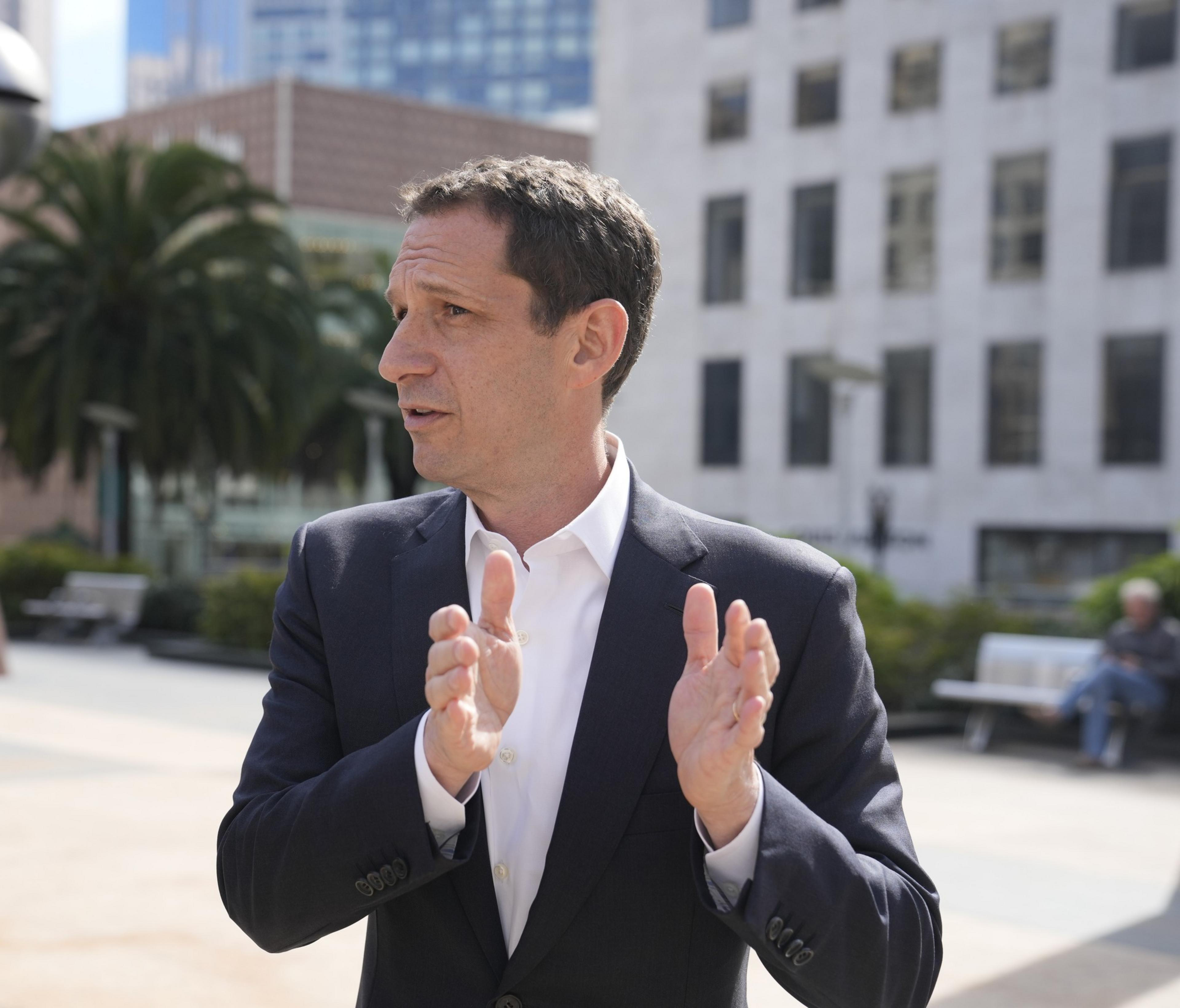One of Mayor-elect Daniel Lurie’s first major changes to City Hall may not light the world on fire with its vision, but it might help San Francisco tackle its most pressing priorities.
Lurie, who beat incumbent Mayor London Breed in November’s election, said Wednesday that he would overhaul the mayor’s office to add more policy chiefs to oversee the city’s 56 agencies.
“The changes we’re making at the top will help break down barriers to effective governance that impact every San Franciscan,” Lurie said in a statement.
Right now those agencies report to a single policy chief, who in turn reports to the chief of staff. Under the new structure, each of the four policy chiefs would be responsible for agencies in one subject area: public safety; housing and economic development; public health and well-being; or infrastructure, climate and mobility.
The changes “make perfect sense,” according to former city controller Ed Harrington. He served as what is essentially San Francisco’s chief accounting officer from 1991 to 2008, giving him an up-close view of City Hall’s dysfunction.
Simply put, there aren’t enough eyeballs on the issues in the mayor’s office, Harrington told The Standard. “It’s not that there are bad people, even. One or two people can’t deal with a $15 billion, 35,000-person organization.
“What ends up happening is you deal with yesterday’s fires, but the long-term strategic planning you need for a city is kind of impossible,” he added.
San Francisco will need solutions soon, as the mayor’s office just announced that the city’s two-year budget shortfall has grown to an estimated $867 million. More precarious yet, President-elect Donald Trump is reportedly mulling yanking federal funding from cities that don’t comply with his mass deportations, threatening to blow an even wider hole in San Francisco’s ever-ballooning budget deficit.
Ben Rosenfield, another retired city controller and a member of Lurie’s transition team, said flattening responsibilities in the mayor’s office will help tackle the city’s pernicious challenges.
“The current structure gets in the way of departments working together,” Rosenfield said in a statement.
The reforms were recommended in an August report (opens in new tab) by local think tank SPUR, an urbanist organization with decades-long influence on city policy.
At least one of SPUR’s recommendations were recently rejected by city voters: some of the changes proposed in Proposition D. That measure, which sought to expand the mayor’s authority to hire and fire department heads, failed in the November election.
SPUR’s report also recommends merging some departments that perform similar duties, like those that disburse permits, to resolve headaches for San Franciscans who have to ping-pong between city agencies to accomplish simple tasks.
When asked who exactly would fill the roles, Lurie spokesperson Max Szabo said the appointments will be announced.
